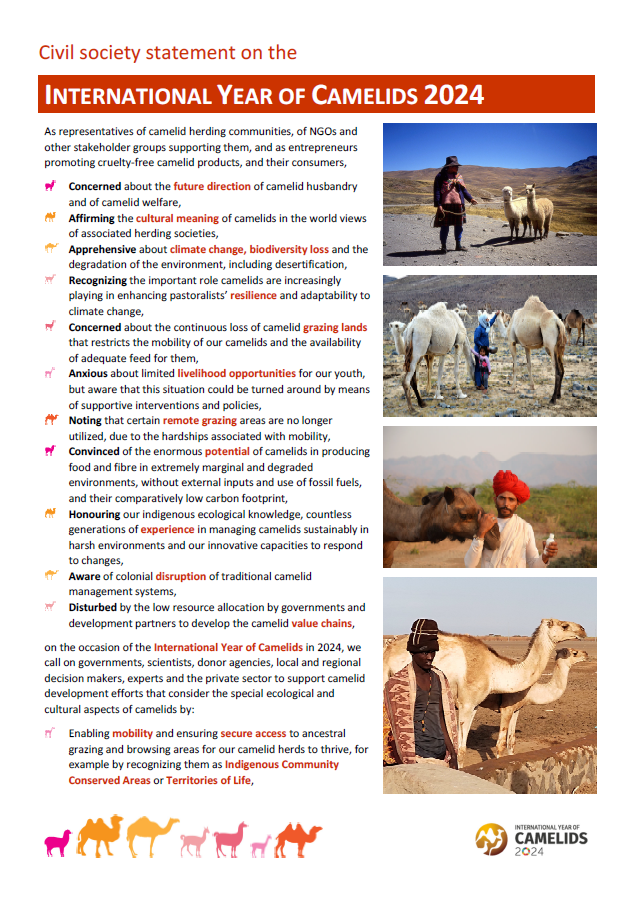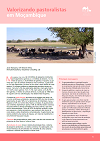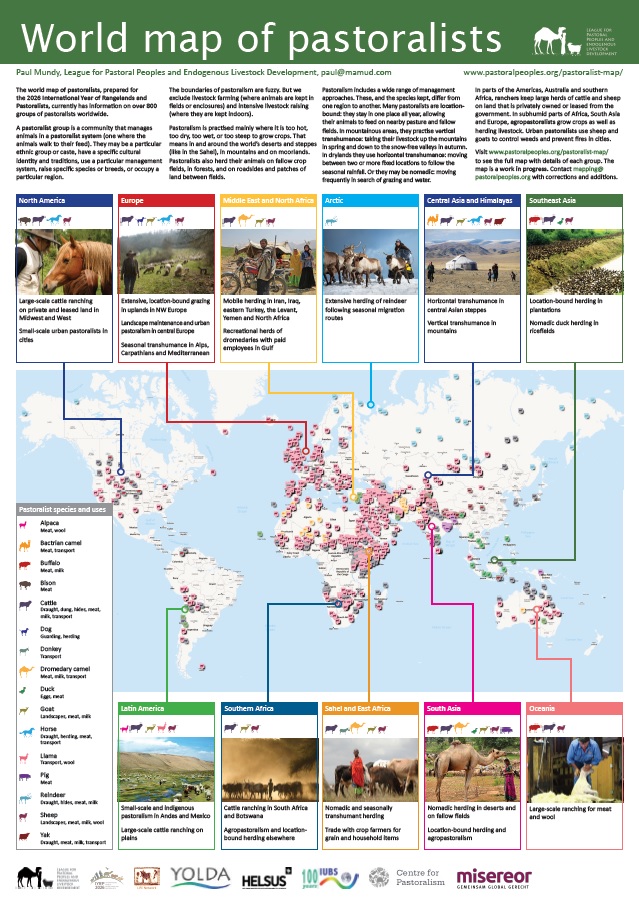19 organizations sign civil society statement on the International Year of Camelids

Nineteen civil society organizations have so far signed a statement calling for greater efforts to support the development of camelids around the world.
Camelids include domesticated alpacas, llamas, dromedaries and Bactrian camels, plus guanacos, vicunas and wild Bactrians, which are wild species.
Domesticated camelids are vital for herders in the Andes of South America, the drylands of the Sahel and East Africa, and the deserts and steppes of the Middle East and Central Asia.
The civil-society statement calls on governments to ensure that herders can remain mobile so they can continue to find pasture and water in these harsh environments. It also calls for investments in small dairies and decentralized infrastructure so herders can sell their products, and better provision of veterinary services to keep their livestock healthy.
It stresses the need for standards for camelid welfare and the avoidance of the industrial management practices that have become typical of other livestock species.
2024 has been designated as the International Year of Camelids by the United Nations.
Do you represent a civil-society organization? Contact info@pastoralpeoples.org to sign up to the statement.
World map of pastoralists poster
This poster shows the locations of over 800 pastoralist groups around the world, and highlights pastoralist systems from the Arctic to Australia. The poster is DIN A1 size (59.4 x 84.1 cm or 23.4 x 33.1 inches).
The poster is based on the World map of pastoralists, prepared for the 2026 International Year of Rangelands and Pastoralists..
Visit www.pastoralpeoples.org/pastoralist-map/ to see the full interactive map with details of each group.
Now in Portuguese: Accounting for pastoralists in Mozambique

The information brief Accounting for Pastoralists in Mozambique by Jacob Wanyama and Romuald Rutazihana is now available in Portuguese.
Agropastoralism is the major form of livestock management in Mozambique. Despite this, it is neglected by the government and development agencies alike. A key problem is a lack of reliable data. Without adequate information, it is impossible to design policies or interventions to address the problems that agropastoralists face.
O resumo informativo Valorizando pastoralistas em Moçambique por Jacob Wanyama e Romuald Rutazihana está agora disponível em português.
O agropastorilismo é a principal forma de gestão pecuária em Moçambique. Apesar disso, é negligenciado tanto pelo governo quanto pelas agências de fomento. Um problema chave é a falta de dados confiáveis. Sem informação adequada, é impossível desenhar políticas ou intervenções para enfrentar os problemas que os agropastoris enfrentam.

